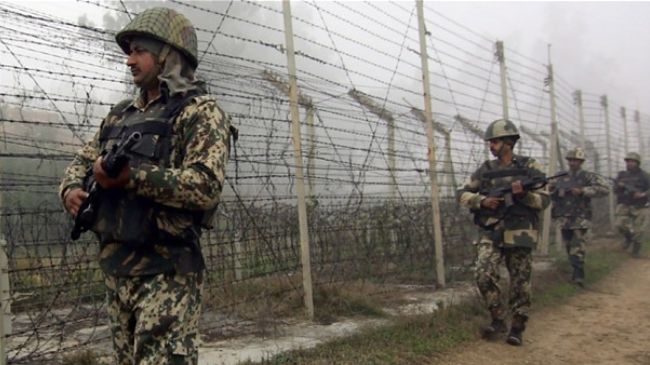The cease fire violations along Line of Control (LoC) on Jammu and Kashmir state as well working boundary between Indian and Pakistan led to renewed tension. During the weekly talks on telephone, Directors General of Military Operations (DGMOs) of India and Pakistan’s agreed on 26 August 2014, to reduce tension. They also agreed to hold flag meeting at the field level. Pakistani government went a step ahead and offered help to Indian administrators in held Jammu and Kashmir state, in order to mitigate the suffering of the Kashmiris affected by the recent flash floods. Official statement from Pakistani Ministry of Foreign Affairs said, “The Government and the people of Pakistan express deepest condolences over the loss of precious lives of our Kashmiri brethren on both sides of the LoC caused by torrential rains and flash floods.” It is pertinent to mention here that floods in Indian held Jammu and Kashmir state have left 156 dead and caused huge damage to infrastructure. The Indian National Disaster Response Force (NDRF) found themselves helpless in front of grave disaster but are doing their best along the Indian Armed Forces to minimize effects of disaster. In a reciprocal move, Indian Prime Minister Mr. Narendra Modi also offered Indian assistance to Pakistan for flood relief operations in Azad Jammu and Kashmir. However, keeping in view of well coordinated relief and rescue operations by Armed Forces of Pakistan and the civil administration, India offer was politely declined by the Prime Minister of Azad Jammu and Kashmir.

In a letter to Pakistani premier, Prime Minister Modi wrote, “It is a matter of great distress that the retreating monsoon rains have played havoc in many parts of our two countries”. It is irony that misunderstanding dominated the stage of scheduled Foreign Secretary-level talks on 25 August, when Pakistani envoy in New Delhi, Mr.Abdul Basit held talks with Kashmiri leaders ahead of the official bilateral talks and on the very basis India announced cancellation of dialogue. Despite this negative development, there are still hopes of relaxation of tension between the two nuclear power countries as bilateral meeting between the two premiers is likely in New York, on the sidelines of the United Nations General Assembly meeting, scheduled later this month. Islamabad’s generous offer to New Delhi came at the time when Indian Army’s Northern Command suffered unbearable losses and need at least one and a half year to return to normal. According to official estimates, the floods have affected 2,325 villages out of which 345 had gone under complete flood waters, while over 300 kilometers long fencing on the Indian side of LoC washed away from many places. In a recent conference, General Officer Commanding 16 Corps, Nagrota, Lieutenant General K.H. Singh gave briefing on ‘Operation Megh Rahat and Mission Sahayata’ to the Army Commanders, reflecting losses to Indian Army including destruction of 182 bunkers and numerous casualties from military side.
He also highlighted the ongoing operations and missions that Army launched including performance of medical teams in the affected areas. Around 1500 locals are also looked after at camps by Army. The fact cannot be denied that the Indian Headquarters at Badamibagh, Srinagar and other key areas of Army Northern Command and Border Security Force (BSF) submerged with an estimate of over 5700 Indian personnel and their families affected. It is not the time to discuss irritating issues, when losses on the both side of LoC have occurred due to flash flood. But to make the things right, it is important to highlight certain facts. There was time when Jhelum River was considered to be responsible for floods in Indian held Kashmir valley. On the other hand, very seldom floods occurred in the Indian held Jammu province. However, the recent flood caused huge losses to lives and property. No one can stop natural disaster but transfer of water from one river to another and one reservoir to other is often resisted by nature. The recent flash floods needs to be seriously taken and analyze how man-made structures disturb the echo system. The overflow of the glacier lakes was one of the factors while India also opened the doors of a number of small dams and reservoirs on Tapi, Jhelum Chenab Rivers etc including the reservoir of the Dulhasti power station, which caused disaster. One wonders if New Delhi can object Pakistan talking to Kashmiri leadership in New Delhi, why India forgets when she is erecting dams and reservoirs in Jammu and Kashmir state, without the knowledge of Pakistan. It is high time that both countries should remove suspicions and misunderstandings and come forward to solve all pending issue to be good neighbours and friends.
Blog post Written by Afshain Afzal and you can visit the original article at http://www.pkhope.com/